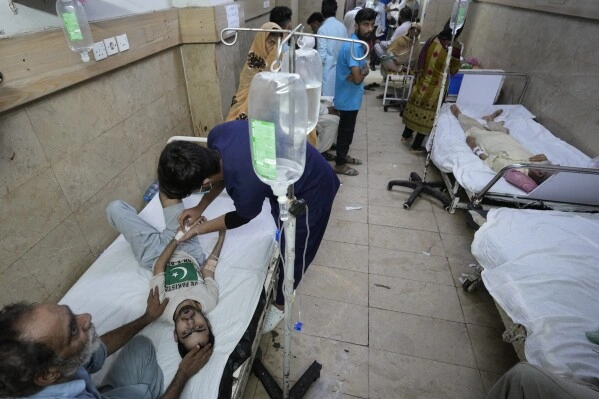- Web Desk
- Feb 09, 2026
NIH issues advisory over risk of Congo fever, heatstroke
-

- Web Desk
- Apr 16, 2025

ISLAMABAD: The National Institute of Health (NIH) on Wednesday issued a public health advisory warning of increased risks of Crimean-Congo Hemorrhagic Fever (CCHF) and heatstroke across Pakistan, particularly with Eid-ul-Azha approaching and temperatures continuing to rise. National Disaster Management Authority (NDMA) earlier also released a report about sweltering temperatures across country this summer.
The NIH raised alarms about intensifying heatwave conditions across the country and officials noted Pakistan’s increasing vulnerability to extreme temperatures, with heatstroke-related illnesses and deaths becoming more frequent each year. The advisory stressed that dehydration and prolonged sun exposure between 11am and 3pm pose particularly severe risks.
Below-normal rainfall threatens crop yields: NDMA
The advisory also noted that CCHF, a viral hemorrhagic fever transmitted through ticks or contact with infected animal blood, has already caused 61 reported cases in Pakistan this year. With increased animal encounters expected during Eidul Azha in June, health officials warned the virus could spread through contact with livestock or their bodily fluids. The disease carries a high mortality rate and can also transmit between humans through exposure to infected blood or secretions.
NIH authorities recommended preventive measures including wearing protective gear when handling animals, using insect repellent to avoid tick bites for CCHF while staying hydrated, and limiting outdoor activity during peak heat hours to deal with heatstroke. The NIH stressed that immediate medical attention is crucial for anyone exhibiting symptoms of either condition – particularly high fever, bleeding, or neurological symptoms for CCHF, and confusion or loss of consciousness for heatstroke.
The dual advisory comes as Pakistan faces overlapping public health challenges from both infectious diseases and climate-related health threats. Health officials urged provincial authorities to increase surveillance and public awareness campaigns ahead of the high-risk periods.




